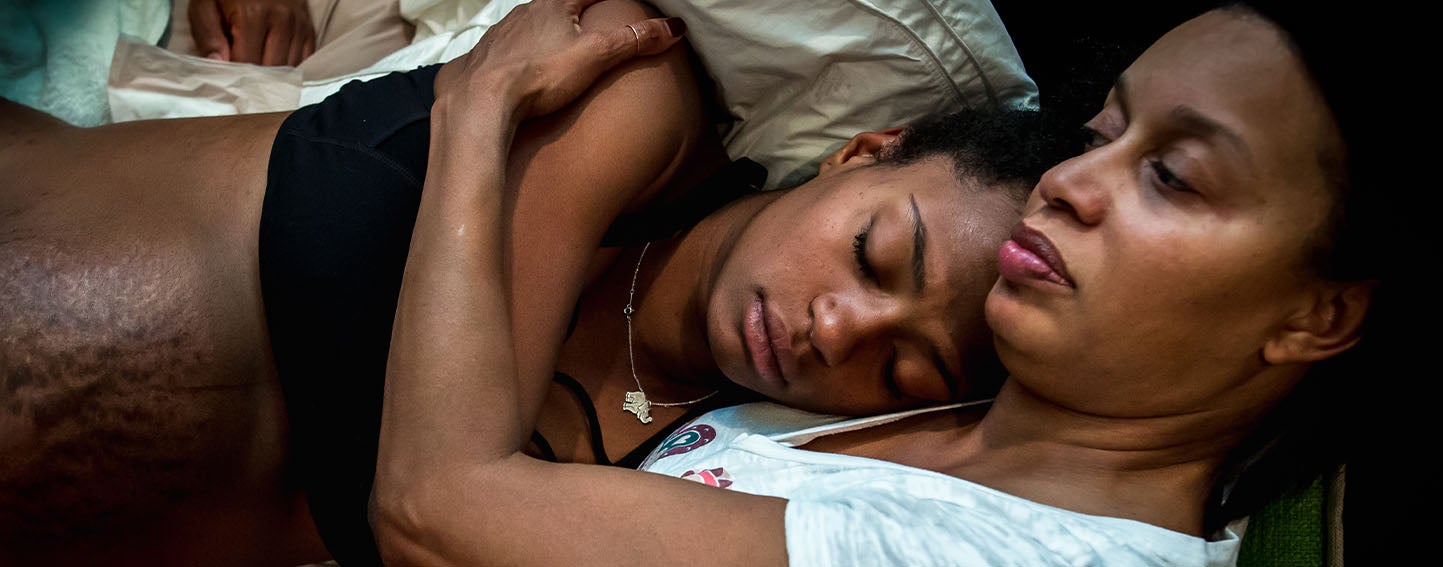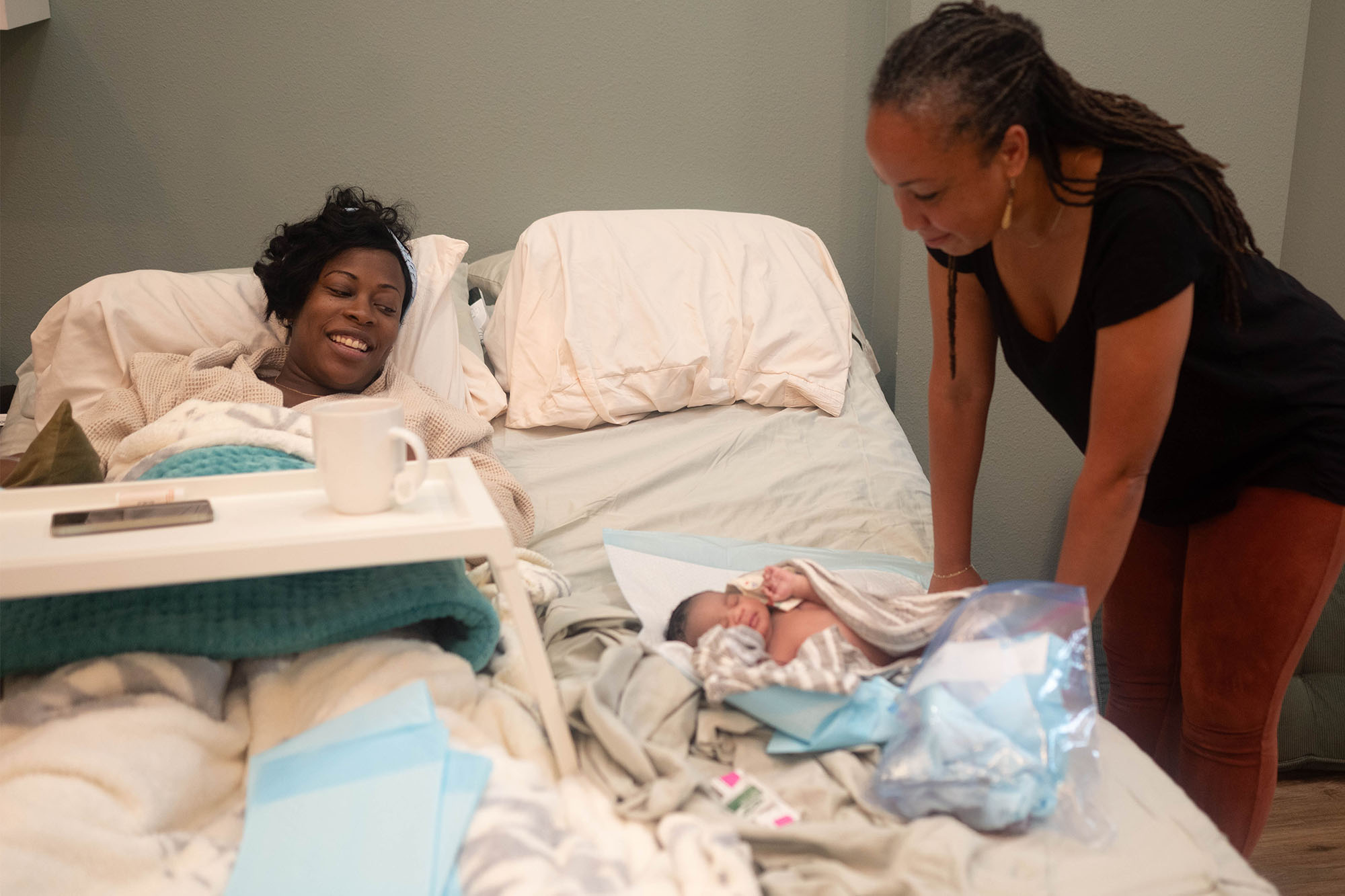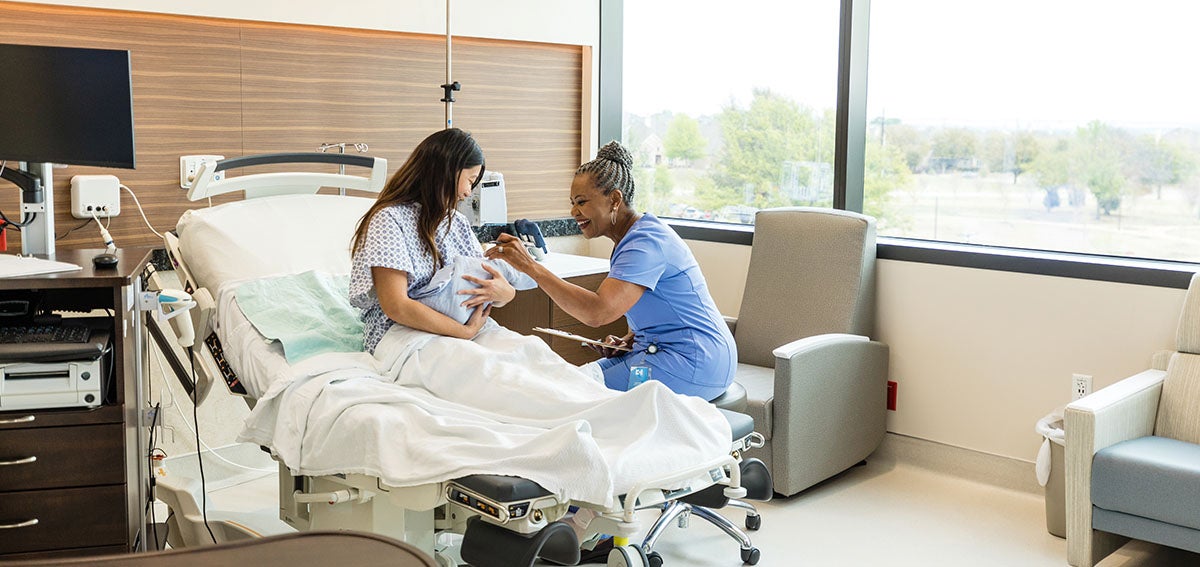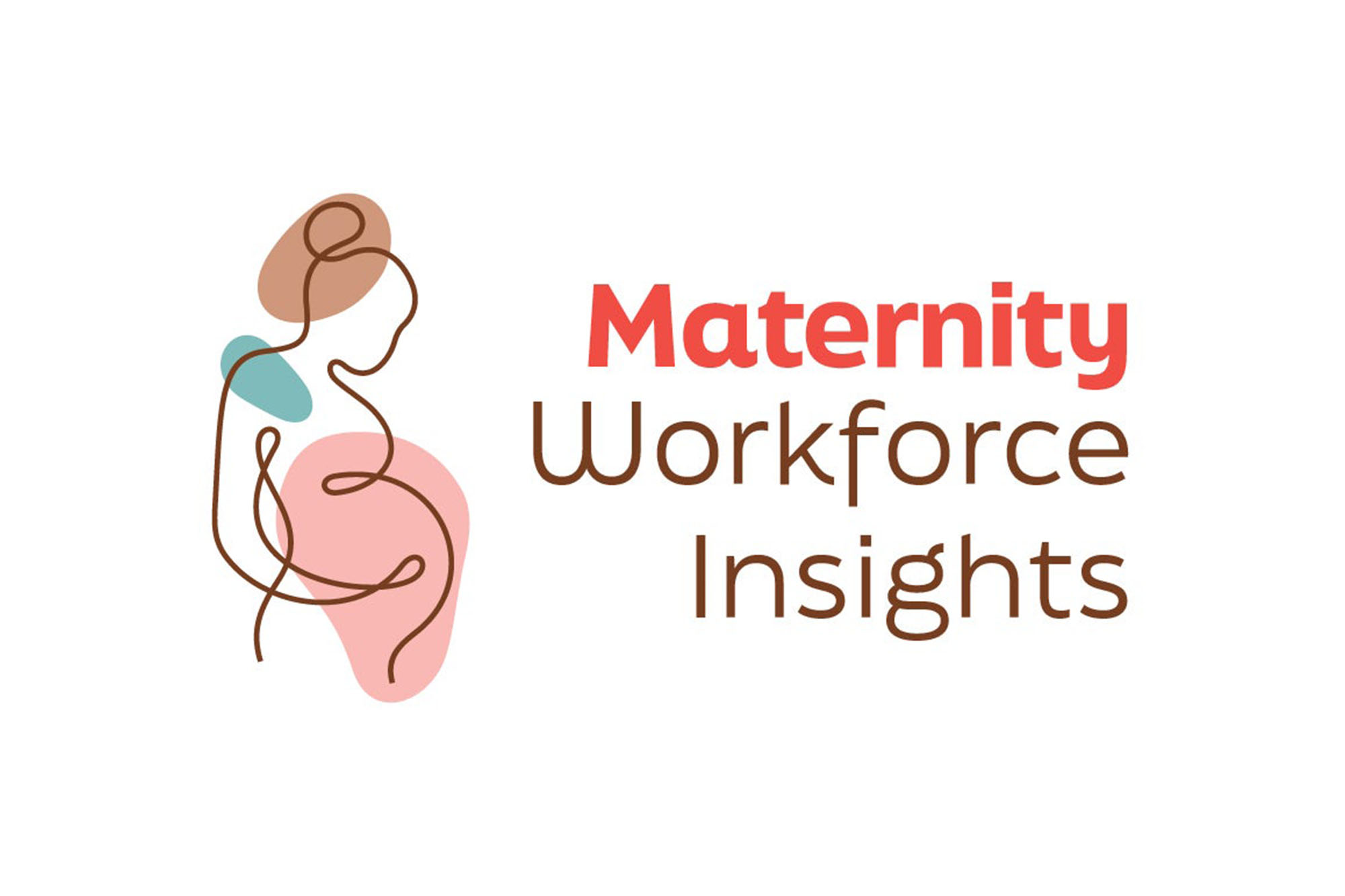

When Collier Meyerson found out that she was pregnant, she and her husband talked about buying a two-bedroom apartment and budgeting for the cost of daycare. But there was another topic she couldn’t bring herself to talk about as an expectant Black mother: her fear of dying in childbirth. The Brooklyn-based journalist had recently read a report from NPR and ProPublica’s Lost Mothers series that drew attention to the disproportionately high maternal death rate among Black mothers. In Meyerson’s home state, Black women are three to four times more likely than white women to die in childbirth. As she writes in New York Magazine, “It was as if I thought talking about [maternal mortality] would make it more real, harden the probabilities.”
She eventually did discuss her fears with her husband, and they hired a team of two doulas to act as “strategist, advocate, confidant, outside opinion, and aide” for Meyerson throughout her pregnancy and into the postpartum period. Research shows that doula care is associated with healthier outcomes for mothers and babies, including fewer c-section births, reduced use of epidural anesthesia, and an increase in breastfeeding. Ten hours into her labor, Meyerson developed a life-threatening pregnancy complication called preeclampsia, and her doulas helped her communicate with her labor team. “My doulas were my translators and my caretakers when I was confused, bleary-eyed, and exhausted during my 15-hour labor,” she writes, adding, “If I didn’t have a doula, I’m positive my foray into breastfeeding would have lasted two days, not six months (and counting).”
Making Maternal Health Care Affordable
But doula services are not inexpensive. Meyerson’s doula partners cost $2,400 out of pocket, an amount that would likely be prohibitive for those who would benefit most from doula support — women who have lower incomes, are socially disadvantaged, or who have trouble accessing care due to cultural or language barriers. A new pilot program in New York aims to change that. As of March 1, the state is piloting the expansion of Medicaid coverage for doulas, starting in Erie County and later expanding to Kings County (Brooklyn). Medicaid’s reimbursement rate for doulas is set at $600, which includes four prenatal visits, support during labor and delivery, and four postpartum visits. Doulas enroll as Medicaid providers to be reimbursed by the state, and women on Medicaid who live in Erie County are eligible to receive the services at no cost.
Regina M. Conceição, a certified doula who founded a doula collective in New York City, told HuffPost she’s happy the Medicaid program will help more women access doula care. But she’s concerned that the reimbursement rate is too low for the pilot to succeed. “A lot of doulas I know are not going to be able to apply to be providers because they wouldn’t make enough money to support themselves,” she said. New York’s rate is higher than that of similar programs in Minnesota ($400) and Oregon ($350), but the cost of living in New York is also higher. Conceição would like doulas with five or more years of experience to make $1,000 per birth in New York.
Medi-Cal, the state’s Medicaid program, does not cover doula services for its beneficiaries. But as of 2019, the city of San Francisco has partnered with SisterWeb, a community doula network, to recruit and train doulas for low-income families. Fran Kritz reports in California Health Report that doulas will be paid $1,800 per birth. The program is funded by the San Francisco Foundation’s Community Innovation Fund and focuses on recruiting Black and Pacific Islander women as doulas because those groups disproportionately experience maternal health disparities.
Listening to the Needs of Women of Color
The Listening to Mothers in California survey showed high levels of interest in doula services among Black and Asian/Pacific Islander women who gave birth in California in 2016. The survey was conducted by the National Partnership for Women & Families and funded by CHCF and the Yellow Chair Foundation. Fifteen percent of Black women used a doula, but 66% would consider or definitely want doula support for a future birth. Only 3% of Asian/Pacific Islander women used a doula, but 55% would consider or definitely want doula support for a future birth. Watch Kimberly Durdin, a student midwife and doula, talk about the unique challenges that women of color face with childbirth in this video.
These high levels of interest may be influenced by mothers’ perception of unfair treatment during their hospital stay due to their race, ethnicity, or language. Eleven percent of Black women and 8% of Asian/Pacific Islander women felt they were at least sometimes treated unfairly due to their race or ethnicity, while only 1% of white women felt that way. And 12% of women who speak an Asian language stated that they had experienced unfair treatment in the hospital because of their language. See issue briefs from the survey on the childbirth experiences of Black mothers (PDF) and Asian/Pacific Islander mothers (PDF).
Training Black and Pacific Islander women to become doulas and advocate for mothers of color could help empower these communities while reducing maternal health disparities. As Stephanie Teleki, who leads CHCF’s maternity care portfolio, told Kim Brooks in a New York Times opinion piece, “Women know what they want when it comes to labor and delivery, and it turns out the things they want (midwives, doulas, fewer unnecessary interventions, and cesarean sections) are less expensive and produce better outcomes.”
What was the top health policy story you read this week? Tweet at me with #EssentialCoverage or email me.
Authors & Contributors






